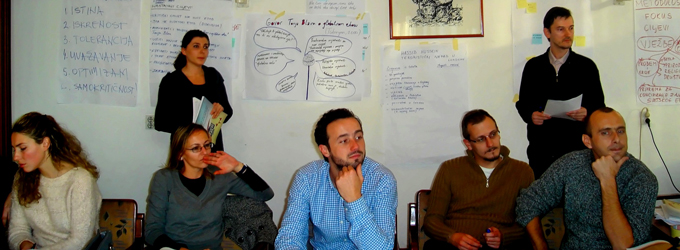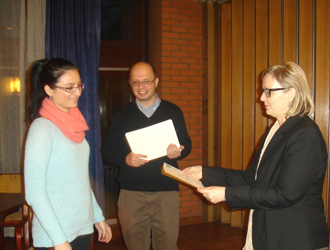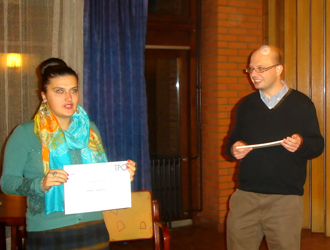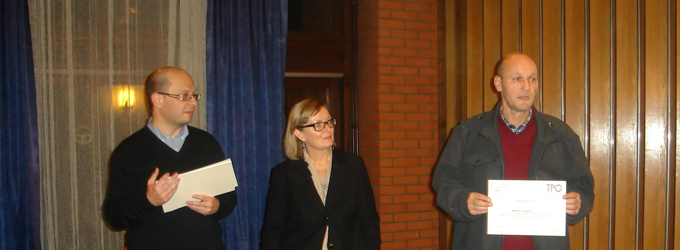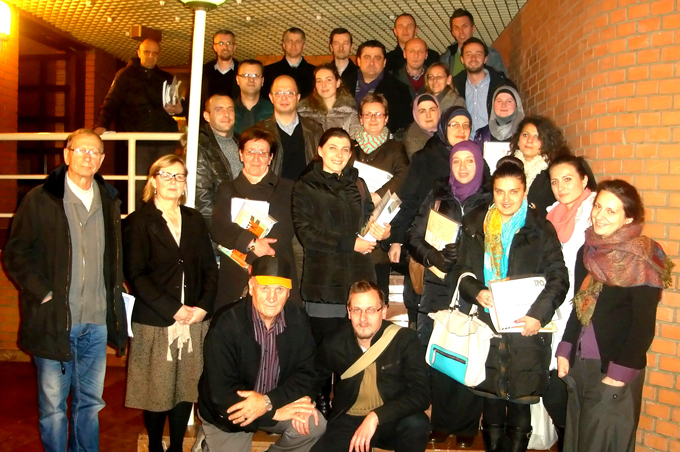December 2014
PROJECT A GLOBAL ETHIC IN SCHOOL: THE THIRD TRAINING OF TEACHERS OF ZENICA-DOBOJ CANTON
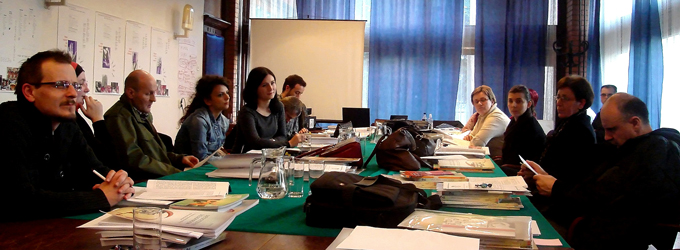
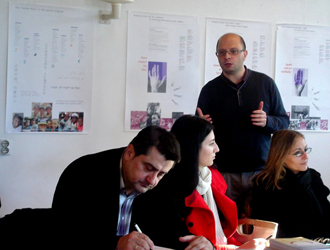
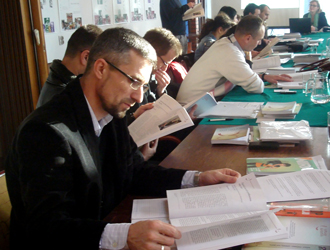
Alen Kristic and Sedzida Hadzic held the third training of teachers and pedagogues of high schools of Zenica-Doboj Canton “A Global Ethic in School” iz Zenica on Saturday and Sunday on December 13 and 14, 2014. The training was done within the project of TPO Foundation, “A Global Ethic in a School: Integrating a Global Ethic into Educational Structures and Processes in Bosnia-Herzegovina”, done with the partnership of the Global Ethic Foundation from Tübingen. The main aim of this training is to introduce teachers of secondary schools to a global ethic and qualify them
that they mediate principles and values of a global ethic to their students in a professional and systematic way. The training was attended by 24 teachers of high schools mainly in the field of social sciences and humanities subjects, representative of the Ministry of Education, Science, Culture and Sports of Zenica-Doboj Canton Amir Hodžić, a program director of TPO Foundation Zilka Spahic Siljak, project coordinator Monja Suta Hibert, and project assistant of TPO Foundation Ivana Krstanovic.
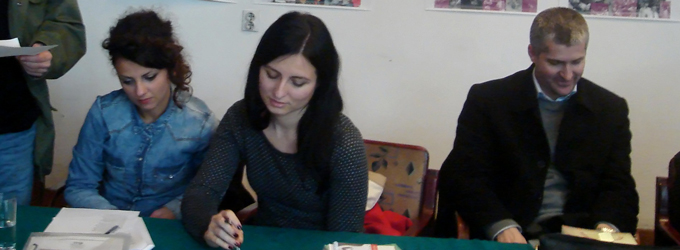
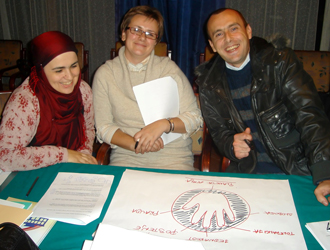
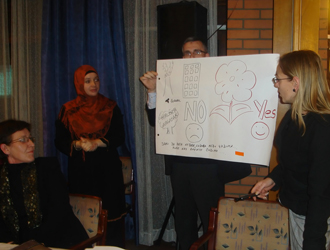
Alen Kristic introduced teachers with the concept of a global ethic, which is developing in several European countries, and the possibilities of its application in BiH. A global ethic is common to all world religions and philosophical traditions of humanism, and as such is desirable and possible framework, worldview and content of the interreligious dialogue in BiH. The founder of a global ethic is a Catholic theologian Hans Küng, who claims that there is no survival without a global ethic and requires a coalition of believers and non-believers. Therefore, an alliance of believers and non-believers is possible in connection with the building of a better world based on shared values because fundamental ethical values common to the world religions are precisely the values advocated by all the great philosophical traditions of the world humanistic orientation. Nowadays, a global ethic represents a model of saving swerve in the direction of opening to the other – we cannot survive without changing the consciousness of a man/village/community/world. The idea of a global
ethic does not advocate neither syncretism nor the domination of one religion over another, nor creation of a new unique global dimension of religion, but consciously-responsible cooperation of believers of different religions, including non-believers, in terms of building a better world, that emerges and allows deeper roots in their own religious tradition. Furthermore, Kristic pointed out that we need to understand the ethic as a repository of human possibilities to make the world a better place for coexistence because a global ethic calls for the research of principles/foundations of our religions, just as the demand to research that what is common to all religions, and not what divides us. Kristic gave lectures on the following themes: "A Global Ethic: Rules of the Globalized World", "A Global Ethic - Jewish, Christian, Islamic and Philosophical Foundation", "A Global Ethic as a Pedagogical Project", "A Global Ethic and Religion Dialogue with Reference to the Issue of Terrorism", and "A Global Ethic in BiH – Contextualization and Application".
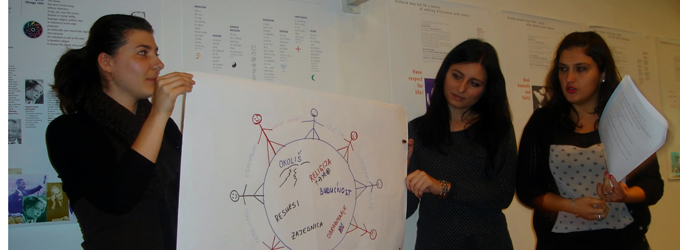
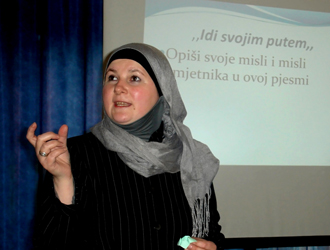
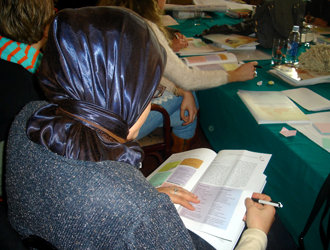
Sedzida Hadzic introduced us with lectures on the themes "Potential Applications and Contextualization Principles and Values of a Global Ethic in Bh Society" and “The Dimension of Learning”, and worked on the demonstration of double lessons. The first double lesson functions as an introduction to the topic and deals with the basics of world religions and the concept of "a global ethic". Another double lesson focuses on recognized and personal perceptions of values and considers values in the writings of the world's religions. The third double lesson deals with the particular conception of the common ethic, and the participants are introduced to the "Project A Global Ethic". The fourth double lesson reflects the ethic drawn up in the context of current religious and
social issues. Emphasis is placed on the problem set of "Terrorism – Christianity – Islam" and the Bible and the Qur'an. After each double lesson was done, double conclusion and review of all the dimensions of the implementation of the particular double lesson was done. Great teachers were able to present elements of a global ethic in a very didactic and methodical rhythm, in phases and stages of the whole day's work.
The training was organized with the approval of the Ministry of Education, Science, Culture and Sports of Zenica-Doboj Canton and the Educational-Pedagogical Institute of Zenica-Doboj Canton. Participants received certificates for the successful completion of the two-day training – teaching unit "Global Ethic in School".
